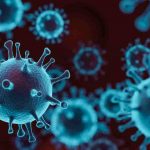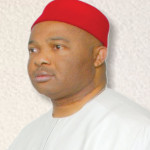FEATURES: Promoting Radiology To Discourage Medical Tourism
Articles/Opinion, Featured, Latest Headlines Friday, October 4th, 2024
(AFRICAN EXAMINER) – The Academic Staff Union of Research Institutions (ASURI) in 2018 said that Nigeria has around 9,000 outbound medical tourists a month, over 100,000 a year, with India being the major beneficiary of 500 visits a month.
Radiologists are important in diagnosing health challenges. They specialise in medical imaging in diagnosis and itreatment of diseases.
Prof. Olalekan Oyinloye, President, Association of Radiologists in Nigeria (ARIN) President, says sub-specialisation of radiologists as focus on a specific component of radiology to enhance expertise.
Medical experts say the global trend is moving towards sub-specialisation of radiologists.
This includes neuroradiology, women and breast imaging, paediatric imaging, and musculoskeletal imaging.
So, among them are, ultrasound, X-ray, scan, computerise homography, magnetic resonance imaging machines are all used in carrying out their work.
Radiologists contribute to patient care either through diagnosis or intervention.
Over the years, Nigerians have sought medical treatment abroad as the health system at home continues to suffer under-funding. One of the leading causes of treatment failure is poor diagnoses.
Will sub-specialisation in radiology enhance diseases detection and treatment and ultimately resulting in lower rate of medical tourism?
The Nigerian Investment Promotion Commission (NIPC) estimates 30,000 Nigerians travel abroad for surgery.
The Central Bank of Nigeria (CBN) in a report also revealed that Nigerians spent $1.58bn on health tourism.
Data from the apex bank’s Balance of Payment compilation spanning the first six months of 2023 showed that Nigerians spent $245.68m on overseas health-related issues.
For a nation that seeks economic growth and development including improvement in the health outcomes of its population, it is a tragedy for medical tourism to become a norm.
Oyinloye said that sub-specialisation of radiologists will help to solve the problem.
“Sub-specialisation will help to minimises errors, ensures accuracy, and translates to better patient management and diagnosis.”
Oyinloye cited lack of equipment as a major hindrance to the profession stressing the need for Public Private Partnerships (PPP) to procure expensive equipment.
Prof. Omolola Atalabi, a professor of radiology, University College Hospital, Ibadan also echoed the need for sub-specialisation in the radiology profession.
According to her, general radiology is outdated while sub-specialisation would discourage medical tourism and help to promote professional efficiency in the medical sector.
President, Nigerian Society of Interventional Radiology (IR), Prof. Anas Ismail, says Nigeria is losing billions of naira to medical tourism.
Ismail, who is a lecturer at Bayero University, Kano, said the loss was as a result of inadequate number of functioning equipment for radiologists to effectively carry out their practice.
He explained that the limited number of trained radiologists in the country to manage these patients also posed a challenge to the country.
“The key challenges facing the practice of Interventional Radiology (IR) in Nigeria at the moment are related to inadequate number of functioning equipment to treat patients and limited number of trained personnel to manage these patients.
“Also, there is the high cost of other items, accessories and consumables, which are used in providing services. As a result of this, we are losing large number of patients.
“Some of these patients who have the capacity to travel out of the country to access treatment elsewhere are doing so and this is not good for the health sector and the economy,” Ismail said.
Dr Agaja James, a Senior Consultant Radiologist, National Hospital, Abuja, said one of the effective ways to address inadequate equipment for radiology profession in the country was to promote Public Private Partnership (PPP).
Through such arrangement, he said, support from individuals, organisations and government could be secured.
James said that the goal is to replicate this idea nationwide, ensuring essential equipment like X-ray and ultrasound machines are accessible in rural areas, as well as enhance citizens’ lifespan.
He said that having these equipment abundant in the health sector will benefit all citizens of this country promote efficiency and discourage medical tourism.
“We’ve chosen to collaborate with the government and private investors to acquire essential equipment, such as X-ray and ultrasound machines, to diagnose specific illnesses and diseases, and ultimately increase life expectancy. (NAN)
–By Aderogba George, News Agency of Nigeria
Related Posts
Short URL: https://www.africanexaminer.com/?p=98174






















